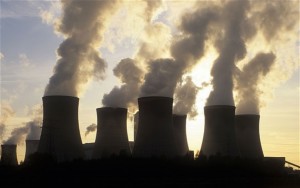One in four people on the planet experienced climate change-driven temperatures every day in June, July, and August because of the burning of fossil fuels, such as oil, gas, and coal, and human activities, according to a new report by Climate Central, a non-profit organisation.

Between June and August, some 2 billion people were exposed to more than 30 days of health-threatening temperatures strongly influenced by climate change.
Seventy-two countries experienced their hottest summer since at least 1970, significantly driven by climate change, according to the report, adding that 180 cities in the Northern Hemisphere experienced at least one extreme heatwave from June to August.
These heatwaves are, on average, 21 times more likely today because of carbon pollution, mainly caused by burning coal, oil and gas, the Climate Central report added.
“High temperatures that were clearly influenced by climate change jeopardised the health of billions around the world during the past three months,” said Andrew Pershing, vice president for science at Climate Central. “No region, country, or city is safe from the deadly threats posed by burning fossil fuels.”
Using Climate Central’s Climate Shift Index, the new analysis quantifies the impact of climate change on temperatures and estimates the number of people affected by these extreme conditions. It provides detailed data on heat exposure at global, regional, local levels, and in about 1,200 cities.
To estimate the risks of heat to human health, researchers looked at days in which temperatures were significantly hotter than the historical record – the “risky heat” days. Temperatures on these days are hotter than 90% of temperatures observed in a local area over the 1991-2020 period – this represents a minimum mortality threshold at which heat-related health risks climb statistically.
Key Findings
- Over 2 billion people (25% of the global population) experienced 30 or more days of risky heat that were made at least three times more likely by climate change.
- More than 4 billion people faced unusual temperatures made at least three times more likely by climate change on August 13, the peak of the global heat.
- During this record-breaking season, when 72 countries broke their heat record for the June-August period, few urban areas escaped the impacts of carbon pollution, mainly caused by the burning of fossil fuels.
- The average person experienced 17 extra days of “risky heat” around the world because of climate change, representing a potential risk to global health.
